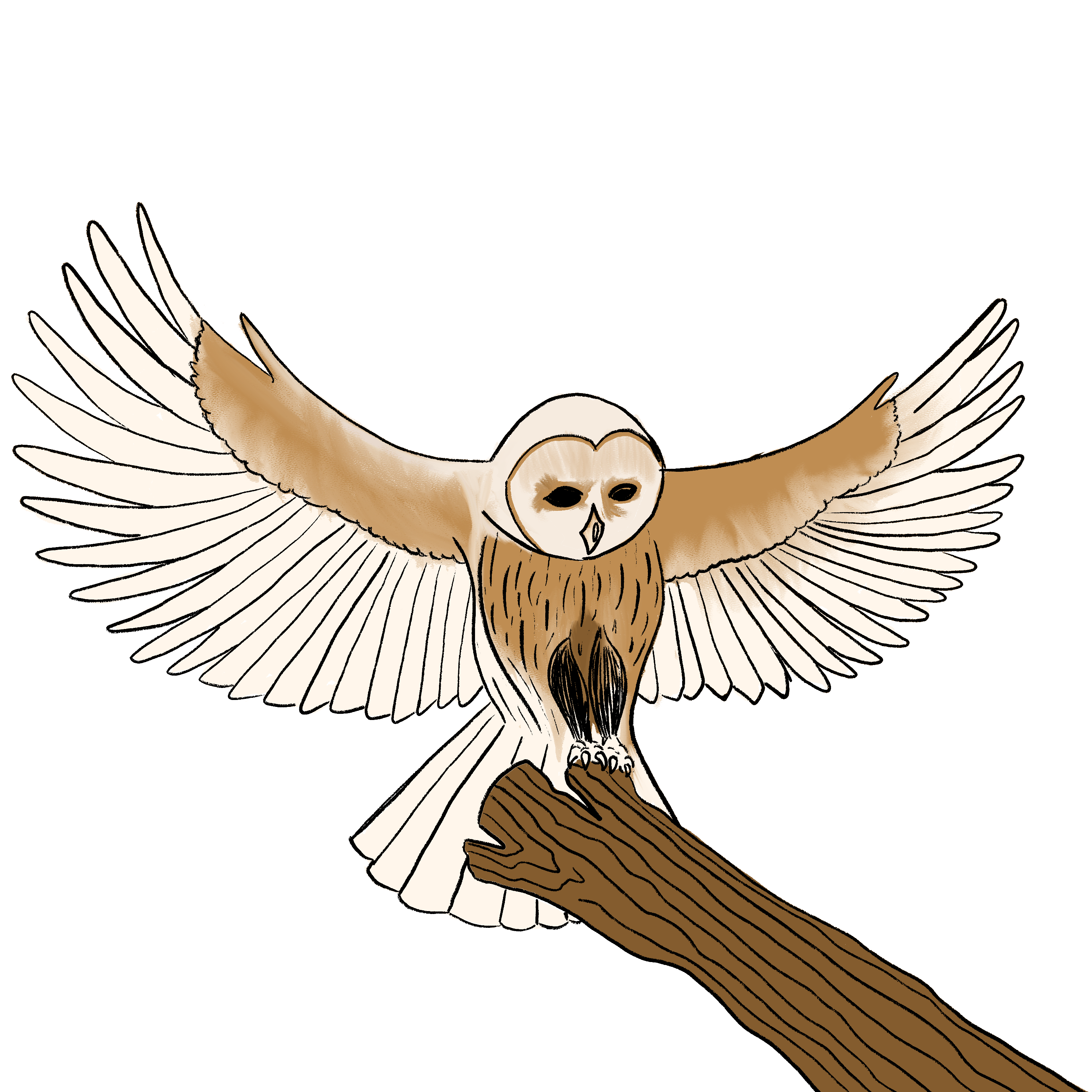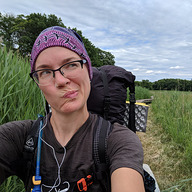
Our new content strategy
By Kate Mueller on Announcements from June 3, 2022
We're going to be making some changes to our blog content strategy. Since you're reading our blog, I wanted you to be the first to know (and I'd love your feedback!).
But first: Why the change?
Previously, our content strategy has been a little all over the place. For a while we had a community manager who published posts on a wide variety of topics; members of our team have written posts; and we've also had a guest blogging program and our amazing guest bloggers have pitched and written an even wider variety of posts.
But we've lacked a clear guiding concept to tie all those together. Our blog was just a place where a lot of interesting ideas got shared. While that's fun, it's also a hard thing to sustain. So we've decided to tighten our focus, define a strategy, and try to stick to it.
The new strategy in a nutshell
The best way I can describe it is to say what its central focus is: Documentarian Quality of Life.
The point here is that documentarians--people producing documentation--are the heart of our content strategy.
If you're creating or maintaining documentation for any type of product, process, or service, we want to create content that is meaningful, helpful, and actionable in your work life.
That might be documentation for your software product, for your support team, for your internal policies and procedures, for your students. It could be highly technical and formal, or highly personal and informal. You might not even consider yourself a documentarian, but in our book, if you're writing documentation, that's what you are!
We basically want to be publishing and promoting content that helps you do that. We know a lot of our readers are small writing teams or teams of one, and if we can help shed light on how other people solve certain problems (or how we do, ourselves), we'd love to use this amazing blog platform to give voice to issues or questions you're facing.
The new strategy in practice
With that in mind, we'll be focusing our content around four key areas:
- Writing docs posts: These are posts about issues documentarians face. This can include best practices or processes for specific types of documentation or workflows, getting buy-in or contributors for your docs, conducting audits, and more. You don't need to be a KnowledgeOwl user to understand and get value from these posts. We spend a lot of time working on our own documentation and talking to other documentarians, and we'd love to share some of the insights we or our guest bloggers have learned about these general issues and interests.
- KnowledgeOwl feature deep-dive posts: These are posts specifically about KnowledgeOwl features and functionality and how to get the most out of them. To be clear: these aren't sales posts. These are posts written for people who are already using or evaluating KnowledgeOwl, because we want you to get everything you can from our product. In the past, we've often shied away from explicitly discussing our product, and the truth is that a lot of our blog readers are also KnowledgeOwl users. We've been doing a disservice to them/you by not talking more explicitly about how to use the product better.
- Company culture/announcement posts: Blog posts are a useful way for us to communicate important changes or info about KnowledgeOwl the company, rather than the product--our year in review, results of our annual customer survey, and more. These posts are often written by our Chief Executive Owl, Marybeth.
- Guest blogger posts: Most of our guest blogger posts will tie to the first two types of posts. We'll be focusing our guest bloggers on the issues you care about within or beyond KnowledgeOwl.
Ultimately, we'd like to produce less content but have it truly speak to our fellow documentarians--if you're not using KnowledgeOwl, there'll still be posts like our Getting Started Guide retrospective that help dig into a specific issue you might be facing. If you are using KnowledgeOwl, you might also delight in posts that shed light on lesser-known features or help you optimize your use of a feature.
Further details
So aside from those four content types, here's a summary of what you'll see around here:
- All of our blog posts moving forward will be written by people who create documentation for a living, by people creating support documentation (we still consider you documentarians, even if you don't!), or by our team, who work closely with documentarians every day. No marketers or salespeople. No content written only at the behest of an SEO consultant. Just content that we think is useful to people creating documentation and using KnowledgeOwl to do it.
- We'll be publishing fewer posts overall, focusing more on quality over quantity. Right now we're aiming for about two posts per month.
- We'll be publishing fewer guest blogger posts, but those we do post will be less random and more tightly coupled with other content we're producing ourselves (such as a series of posts on the same topic, from different perspectives) or on issues we see our writers and users facing.
- We'll explicitly talk about KnowledgeOwl features and functionality.
- We'll clearly categorize these feature posts so that if you aren't a KnowledgeOwl user, you can avoid them. If you are a KnowledgeOwl user, that will make these posts easier to find. For those posts, we'll also be cross-linking more heavily between our support knowledge base and this blog, so you can find more detailed resources.
- Long-term, we'll be moving a lot of our older content that doesn't meet these criteria over to The Not-Boring Tech Writer, since much of it is very good content, just not directly applicable to our main user base. If you've written for us in the past, you'll be hearing from me to review your publishing history with us and where your posts will live, be sure your bio info is up-to-date, and discuss our future content needs. 😉
We'll be launching these changes in stages in the coming months, with a visual update of the blog, too.
We'd love your input
We'd love to know what you think of this new focus and strategy. Specifically, we would love your suggestions in two areas:
Owl-themed category titles
Since guest blogger posts basically fit into the other categories, we will have three basic blog post categories:
- Feature deep-dive blog posts: tentatively called "Linus's flight plans".
Linus is our mascot owl, and we like the idea of offering these "flight plans" as ways to navigate KnowledgeOwl's feature set. - Company culture/announcement blog posts: tentatively called "From the Parliament".
A group of owls is called a parliament, and we refer to all of our KO team collectively as the Parliament. - Writing docs blog posts:
This is the category we're most struggling with how to name and feel like a bird theme might be too forced. Night Vision? Nest logistics? Please help!
If you have any suggestions for category titles, please submit them here. The perks of submitting:
- We might use your idea. You'll be famous. (Well...sort of.) If you'd like, we can give you a shout-out on social media.
- We can send you some KO swag as a thank-you, even if we don't use your idea.
What topics would you like to see our blog talk about?
The central focus of this new content strategy is addressing issues that documentarians face every day. We'll be drawing from our own experiences with our documentation or helping our users.
So we'd love to hear from you, dear reader and presumed documentarian.
What's an area of the documentarian life that you'd like to see more content about? This can be:
- types of documentation/best practices for them
- documentation-related workflows
- trying to get your team to value documentation more or participate in it more (getting buy-in, making the case, etc.)
- if there's anything you've always wanted to know about KnowledgeOwl but haven't asked
- if you know you'll have a big project on xx coming up and you're curious how to handle it
- ...or anything else you'd randomly love to see us blog about
You can drop any ideas, questions, or suggestions to us at blog@knowledgeowl.com.
Drop us a line and let us know what you think!


Writing docs
(253)

General posts useful to all documentarians about writing documentation, editing and publishing workflows, and more.


Feature spotlight
(15)

Your flight plan for how to get the most out of KnowledgeOwl features and integrate them into your workflows.


Announcements
(21)

Major KnowledgeOwl company announcements.


Customer stories
(9)

Learn how others are using KnowledgeOwl & get pro tips on how to make the most of KO!


Company culture
(40)

Find out more about who we are and what we value.


Support
(75)

We believe good support is the foundation of good business. Learn about support tools and methodology.


Tools
(64)

Learn more about tools to solve various documentarian issues, within and beyond KnowledgeOwl.


All
(384)

Not sure what category you need? Browse all the posts on our blog.

Got an idea for a post you'd like to read...or write?
We're always looking for guest bloggers.
Learn moreStart building your knowledge base today
- 30 days free (and easy to extend!)
- No credit card required
- Affordable, transparent pricing
- No cost for readers, only authors
Want to see it in action?
Watch a 5-minute video and schedule time to speak with one of our owls.


